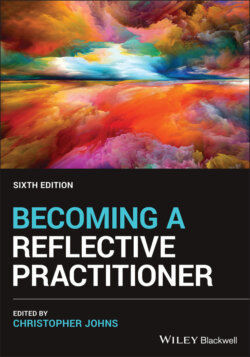Читать книгу Becoming a Reflective Practitioner - Группа авторов - Страница 80
Did I Respond Ethically for the Best?
ОглавлениеEvery experience reveals the practitioner’s ability to act ‘for the good’ or ethically. Yet, how is the ‘ethical’ known? Some guidance is offered by a code of professional ethics that set out the practitioner’s responsibility to act ethically. These codes are constructed around the ethic of duty, or the way a practitioner should conduct self. An obvious example is that a healthcare practitioner should always act in caring manner and treat the patient with dignity and respect. This also means not causing suffering through careless action.
There are a number of ethical principles that the practitioner needs to appreciate; autonomy, benevolence, non‐malevolence, utilitarianism, justice, equality, and confidentiality set against a background of professional integrity and duty.
Ethical principles often contradict each other. As such, doing what was right always needs to be interpreted within each moment (Parker 1990; Cooper 1991). This may be problematic if practitioners have different values, agendas, and levels of authority to make decisions.
